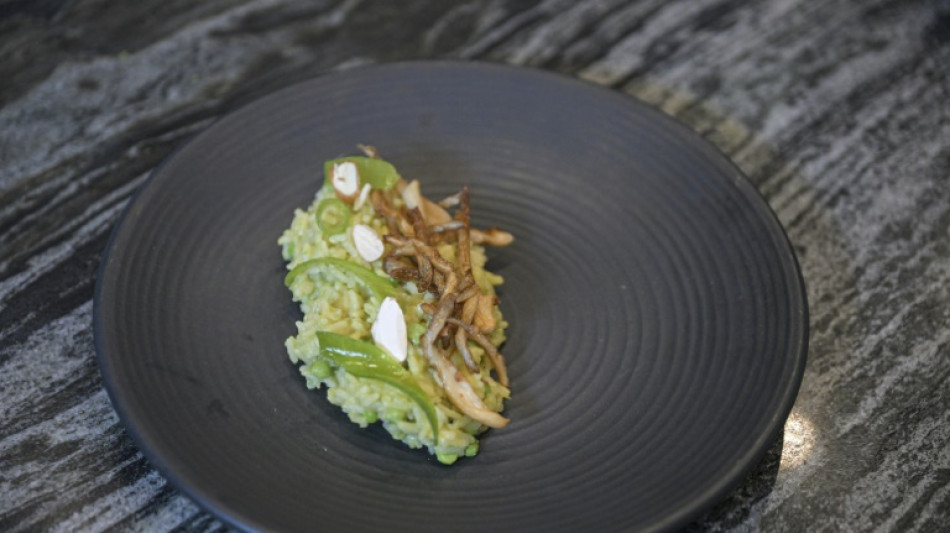
-
 SFWJ / Medcana Announces Strategic Expansion Into Australia With Acquisition of Cannabis Import and Distribution Licenses
SFWJ / Medcana Announces Strategic Expansion Into Australia With Acquisition of Cannabis Import and Distribution Licenses
-
Spurs players 'never lost belief', says Postecoglou

-
 Man Utd stun Lyon in nine-goal Europa League classic to reach semis
Man Utd stun Lyon in nine-goal Europa League classic to reach semis
-
Netflix earnings in first quarter of 2025 top forecasts

-
 Trump says US 'talking' to China on tariffs
Trump says US 'talking' to China on tariffs
-
Salvadoran soldiers stop US senator near prison holding expelled migrant
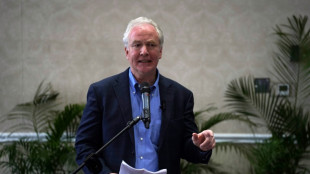
-
 Solanke penalty sends Spurs to Europa League semis
Solanke penalty sends Spurs to Europa League semis
-
CAF crackdown after trouble in African club matches

-
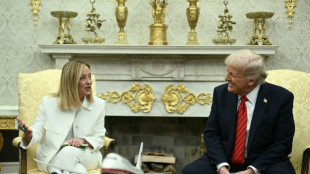 Trump talks up EU tariff deal as Italy's Meloni visits
Trump talks up EU tariff deal as Italy's Meloni visits
-
Trump insists he could fire independent Fed Chair Powell
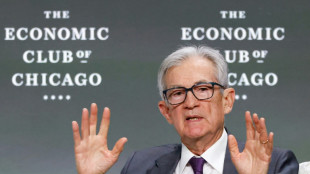
-
 Google has illegal monopoly in ad tech, US judge rules
Google has illegal monopoly in ad tech, US judge rules
-
Trump softens on Zelensky, says mineral deal coming 'soon'
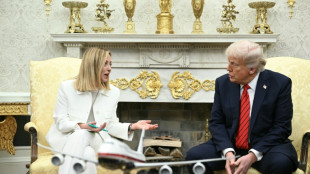
-
 Jacks helps Mumbai beat Hyderabad in IPL
Jacks helps Mumbai beat Hyderabad in IPL
-
Countries must 'make the best' of new multipolar world: IMF chief
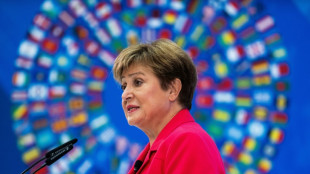
-
 Heavy spring snow storm wreaks havoc in the Alps
Heavy spring snow storm wreaks havoc in the Alps
-
US judge rules against Google in online ad tech antitrust case

-
 Andreeva knocked out by Alexandrova in Stuttgart last 16
Andreeva knocked out by Alexandrova in Stuttgart last 16
-
Iran challenges four countries in UN court over jet it downed in 2020

-
 'Not at 50' - Alonso sets retirement limit
'Not at 50' - Alonso sets retirement limit
-
Macron praises US-European-Ukraine talks as 'important occasion for convergence'

-
 Verstappen dismisses Red Bull exit fears
Verstappen dismisses Red Bull exit fears
-
Italy's Meloni, Trump talk up EU trade deal hopes

-
 'Slow but steady' progress for Martin after Qatar MotoGP crash
'Slow but steady' progress for Martin after Qatar MotoGP crash
-
Pogacar-Van der Poel duel inspires Evenepoel comeback

-
 US judge rules Google monopolized online ad tech market
US judge rules Google monopolized online ad tech market
-
Bearman back at 'special' debut-track Jeddah

-
 Swiss watch exports to US soared ahead of Trump tariffs
Swiss watch exports to US soared ahead of Trump tariffs
-
Alcaraz finds best to reach Barcelona Open quarters

-
 Where are all the aliens?: Fermi's Paradox explained
Where are all the aliens?: Fermi's Paradox explained
-
France full-back Dulin to retire at end of season

-
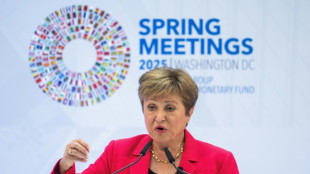 World economy likely to avoid recession despite tariffs: IMF chief
World economy likely to avoid recession despite tariffs: IMF chief
-
57 killed in Sudan's Darfur as trapped civilians fear bloodbath

-
 Vietnam ups wind, solar targets as energy demand soars
Vietnam ups wind, solar targets as energy demand soars
-
Pope says doing 'best he can' on jail visit before Easter

-
 China's Xi meets Cambodian leader as part of regional diplomatic blitz
China's Xi meets Cambodian leader as part of regional diplomatic blitz
-
Ukrainian tennis player seeks legal justice over 'moral abuse'

-
 Italy's Meloni seeks EU tariff deal from Trump
Italy's Meloni seeks EU tariff deal from Trump
-
France's feminist icon Pelicot to sue Paris Match for privacy invasion

-
 World economy should avoid recession despite tariffs, IMF chief says
World economy should avoid recession despite tariffs, IMF chief says
-
Stocks waver as ECB cuts rate, Trump slams Fed chief
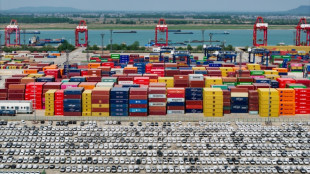
-
 France, UK mull migrant swaps in bid to stem Channel crossings
France, UK mull migrant swaps in bid to stem Channel crossings
-
Nuno says Forest still in control of Champions League chase

-
 Malinin, Liu help US take early lead at skating's World Team Trophy
Malinin, Liu help US take early lead at skating's World Team Trophy
-
Clashes in Sudan's besieged Darfur city kill 57

-
 Kyiv's Europe allies seek influence with US in Paris talks
Kyiv's Europe allies seek influence with US in Paris talks
-
Russia scraps Taliban's 'terror' label amid warming ties

-
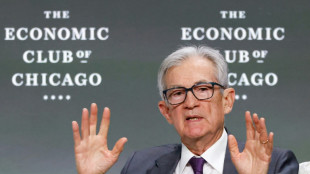 Trump says Fed chief's 'termination cannot come fast enough'
Trump says Fed chief's 'termination cannot come fast enough'
-
China's Xi, seeking to build regional ties, meets Cambodian leader

-
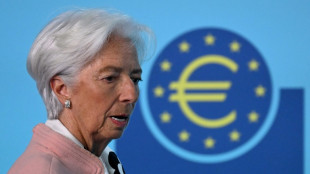 ECB cuts rates as Trump tariffs raise fears for eurozone growth
ECB cuts rates as Trump tariffs raise fears for eurozone growth
-
Etzebeth returns to Sharks lineup after concussion absence


Waste not want not: Peruvian drive to feed more with less
Peruvian cook Isabel Santos prepares a salad with carrot peels and pea shells at a community kitchen in Lima; a disciple of a sustainable cuisine movement seeking to tackle hunger and food waste at the same time.
With five other women, she works at making 150 tasty, vitamin-packed servings that include "the peels of potatoes, peas, carrots, leeks and ginger that we used to throw away," the 76-year-old told AFP.
Santos is a follower of the "Optimum Kitchen" concept of renowned Peruvian chef Palmiro Ocampo, who promotes the concept of nose-to-tail cooking -- part of a more planet-friendly food drive increasingly finding a following world-wide.
"There is no such thing as waste," Ocampo, 40, told AFP on a recent visit to Santos's Maria Parado de Bellido kitchen in a poor district of southern Lima.
"An ingredient has to be used in its entirety," he said, in a world where a third of food is wasted while 800 million people go hungry.
Palmiro and his wife Anyell San Miguel train cooks from Peruvian soup and community kitchens and share recipes through their project Ccori, which means gold in the Indigenous Quechua language and was created 11 years ago to promote "culinary recycling."
As a result "more than a ton of ingredients that would normally end up in the garbage have been... turned into delicious food," said the chef.
Not only tasty but healthy too: "many of these (formerly discarded) food parts have more nutrients" -- vital to combat anemia, which affects more than two in five children in Peru.
Banana peels, for example, "contain a lot of magnesium and zinc" and pea shells are rich in iron, according to the chef.
At first, it was not easy to convince people, added Ocampo, who describes himself as a "professional recycler."
People told him that "it is one thing not to have any money, but we're not going to eat garbage," he recounted.
- 'Delicious' -
The concept seems to have taken root.
The salad "seems delicious and nutritious to me," 75-year-old motorcycle taxi driver Demostenes Parinan told AFP at Santos's kitchen, where a main course, soup and drink is sold for the equivalent of about $1.30.
Also on offer that day was a puree prepared with broccoli stems, a side of pea shells and rice, and drinks made with lemon and celery peels.
"Pigs used to eat better than us because they ate all the leftovers that we threw away," replete with nutrients, reflected Santos.
Anita Clemente of the "La Amistad" soup kitchen in another part of Lima said Ocampo's project "has taught us to... create healthy dishes" with ingredients once discarded.
Clients also end up saving money because they learn to consume the entirety of every product they buy, she told AFP.
According to the UN Environment Program, mankind wasted the equivalent of a billion meals every day in 2022.
Ocampo's concept relies on three main elements: food preservation through methods such as fermentation, "culinary recycling" to extract more from an ingredient already used, and cooking with parts previously considered inedible.
Another beneficiary is planet Earth: the more nutrition can be extracted from a single plant or animal, the fewer need to be grown, while also reducing the greenhouse gases released from the decomposition of organic waste.
L.Harper--AMWN


